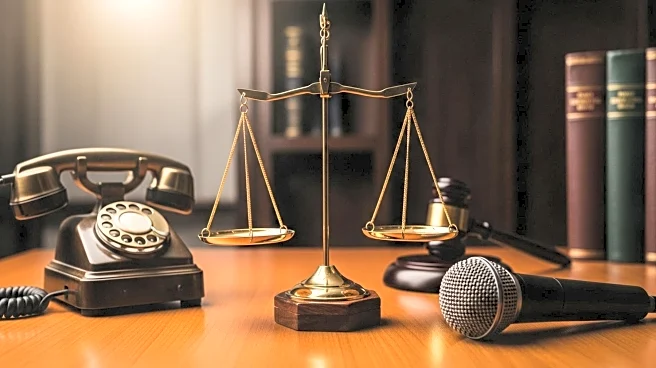What's Happening?
The U.S. Supreme Court has decided not to hear an appeal concerning the practice of prosecutors listening to privileged calls between inmates and their lawyers. This decision follows a petition by Steven Hohn, who argued that the Kansas City division
of the United States Attorney’s Office for the District of Kansas engaged in a widespread practice of eavesdropping on such calls. Hohn's appeal was previously denied by the U.S. Court of Appeals for the Tenth Circuit, which ruled that a defendant must demonstrate trial-specific prejudice to establish a Sixth Amendment claim, even if the intrusion was intentional. The Tenth Circuit had earlier considered accessing confidential attorney-client communications as a structural error that did not require showing prejudice. Hohn contended that this ruling could incentivize prosecutorial misconduct.
Why It's Important?
The Supreme Court's refusal to hear the case leaves unresolved a significant legal question about the boundaries of attorney-client privilege and prosecutorial conduct. This decision could have implications for the rights of incarcerated individuals and the integrity of legal proceedings. The ruling by the Tenth Circuit suggests that defendants must prove specific harm from eavesdropping, potentially making it more difficult to challenge such practices. Legal experts and civil rights advocates may view this as a setback for protecting attorney-client confidentiality, which is a cornerstone of the legal system.
What's Next?
With the Supreme Court declining to intervene, the existing circuit split on this issue remains. This could lead to varied interpretations and applications of the law across different jurisdictions. Legal advocates may continue to push for legislative or judicial clarification to protect attorney-client communications from unauthorized eavesdropping. The case highlights ongoing debates about privacy rights and prosecutorial powers, which may prompt further legal challenges or policy discussions.
Beyond the Headlines
The ethical implications of this case are profound, as it touches on the balance between law enforcement practices and individual rights. The decision not to hear the case may embolden some prosecutors to continue or expand eavesdropping practices, potentially eroding trust in the legal system. Long-term, this could influence how attorney-client privilege is perceived and protected in the U.S.















